
Here’s another project that’s been touched by the shadow of COVID. Lowri Evans and Sarah Zyborska met for the first time at the 2019 Festival Interceltique de Lorient after each had been gigging individually on the Welsh circuit for several years. It’s been a long flash-to-bang time for the project, but they finally got there and the end result is an album of rare beauty influenced by Americana, country, indie the opening song ‘Tell Me World is an uptempo nod in the direction of Belle & Sebastian’s ‘The Boy with The Arab Strap’) and Celtic folk. ‘Tell Me World’ is ten original songs written by Lowri and Sarah (eight together and one each individually). At the risk of sounding blindingly obvious, ‘Tell Me World’ is an album that sounds very Welsh (both Lowri and Sarah are bilingual and two of the songs have Welsh lyrics) and generally the songs have a female, or even feminist, perspective. The one obvious exception is ‘Workshop’, inspired by the contents of an old man’s garden shed, which serves as a metaphor for a place we can escape to indulge our creative urges.
The album’s a very delicate piece of work, ethereal, with a nod in the direction of bands like Clannad with layers of vocals and subtle, underplayed band arrangements from a group of musicians that includes Christians’ singer and keyboard player Henry Priestman. With a variety of musical stylings and lyrical themes that range from the intensely personal ‘She’s A Lover’ (about Lowri’s Mam) and ‘Genes’ (a clever play on words inspired by the birth of Sarah’s daughter) to the more socio-political ‘Waiting in the Background’ and ‘Crazy, Crazy Times’, there’s one constant; the beautiful vocals. Sarah and Lowri’s voices blend together perfectly whether it’s in simple homophonic harmonies or as a celestial choir.
The feminist perspective is obvious in the album’s second song, ‘Waiting in the Background’, which looks at the perceptions of women’s roles in various recent historical eras and highlights the fact that there’s still a long way to go. ‘Crazy, Crazy Times’ also has a socio-political slant, asking us to take responsibility for our own actions rather than just blaming it on a crazy world. At the other end of the scale, ‘She’s A Lover’ is a hymn of (mainly) praise to Lowri’s mam which has a Celtic country feel and features some delicate pedal steel. The album’s closing song’ ‘Atgofion’ has Welsh lyrics, which is fitting for a tale of an emigré’s memories of a Wales she will never see again.
The album’s a lovely mixture of styles, band arrangements, lyrical themes and even languages which is held together by great group of musicians and two stunningly good voices. It wraps itself around you like a warm blanket while giving you plenty to think about as well. It’s certainly the best debut I’ve heard in a long time.
‘Tell Me World’ is out on Friday March 24th on Shimi Records (SHIMICD0028).
Here’s a lockdown video of ‘Crazy, Crazy Times’:
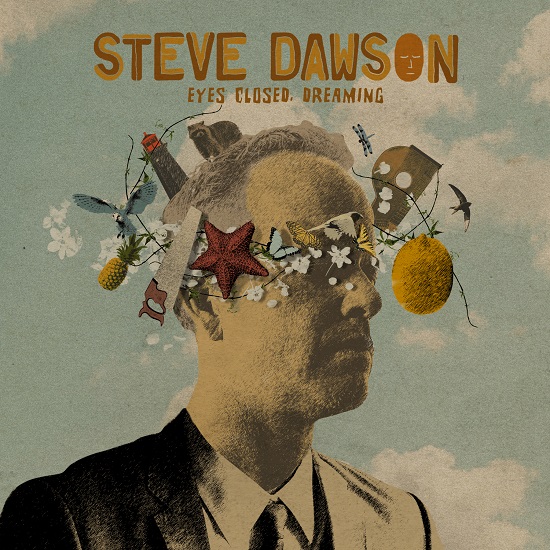
There are a couple of things you can expect from any Steve Dawson album: it’s going to be beautifully arranged and played, and definitely unpredictable. ‘Eyes Closed, Dreaming’ doesn’t disappoint on either count. It’s the third of Steve’s pandemic albums, with contributions pieced together remotely, a logical and necessary extension during lockdown of the studio practice of recording parts separately. It’s a tribute to Steve and all the superb musicians involved that the whole album feels like it was recorded by musicians playing in the same room. The arrangements on the album are trademark Steve Dawson with lots of layers of guitars and a whole raft of instruments that are unusual in any context but particularly in Americana arrangements. As ever, he makes it work, creating soundscapes that sound uncluttered while using multiple guitars, bass, drums, keyboards (including Moog and mellotron), strings, horns and even marxophone, vibraphone and pump organ.
Steve enjoys reworking other people’s songs with his own spin and there are four of those on the album, ‘Long Time to Get Old’ and ‘Guess Things Happen That Way’ get the swampy Southern rock treatment, while ‘Small Town Talk’ with its horns, nods in the direction of Muscle Shoals and ‘Let Him Go on Mama’ is a solo piece with Weissenborn backing that closes the album. There are also a couple of reworkings of traditional songs. These are all great versions that give Steve a chance to have a bit of fun and show his instrumental versatility, but the backbone of the album is the four songs co-written with Matt Patershuk.
Matt’s a hugely creative and poetic songwriter and the four co-writes are a good representation of the breadth of topics he likes to cover, from the nostalgic ‘Polaroid’, harking back to a pre-digital era to the wonders of nature expressed in ‘The Owl’. ‘Hemingway’ references, well, Ernest Hemingway, while ‘A Gift’ is about taking care of your family and showing pride in workmanship. Like all of Matt’s songs, they’re thought-provoking and occasionally spring a few surprises. As good as the rest of the album is, these four songs shine brightly.
Steve Dawson’s one of the many that accepted the pandemic lemons and made artisan lemonade by learning a completely new way of working and using the enforced break to create three superb albums. ‘Eyes Closed, Dreaming’ covers a range of styles from folk ballads through Americana to ragtime and Hawaiian music and Steve sounds convincing in all of them with his range of instruments, particularly the Weissenborn. And I almost forgot to mention that he has a great laid-back and soulful vocal style. You won’t get bored listening to this album.
‘’Eyes Closed, Dreaming’ is released on Black Hen Music (BHCD0098) on Friday March 24th.
Here’s a live studio video for ‘Small Town Talk’:
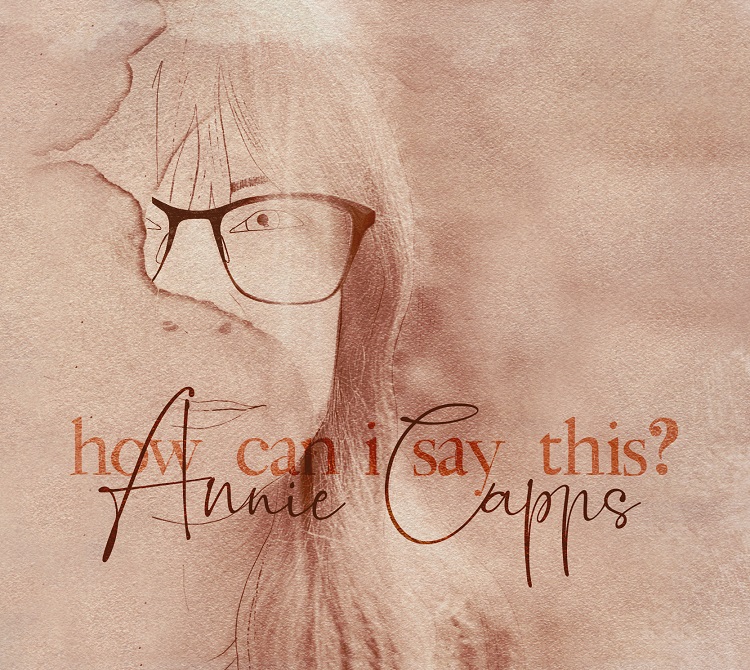
There are some song-by-song notes in the press kit for Annie Capps’ album which offer a few glimpses inside the songs and their meanings, but it only scratches the surface. There’s a lot you have to work out for yourself and that’s exactly how it should be; when an artist puts a lot of work and ability into creating an album, then it’s only fair that the listener should be willing to put in a bit of effort to get the maximum out of it.
The press release focusses on the personal nature of the album’s twelve songs, but there’s a wider agenda: “the personal is political”. The songs are personal and autobiographical, but there’s also a wide current of feminism running through with songs highlighting misogyny, coercive control and bullying, and the hypocrisy in organised religion on gender and original sin. If you need to be convinced about the album’s feminist credentials, every person involved in the project, from start to finish, is female; from the artists to all of the production team. ‘How Can I Say This?’ is very much about the female experience.
The message is there from the opening song; ‘My Eden’ with its folk arrangement and string section spelling out the institutional sexism of the Catholic church and the way in which girls are made to feel guilt from a very early age through the concept of original sin. The sequencing of the album takes the story from this early indoctrination into coercive parental control and distorted self-perception. Ultimately, the journey takes us through grief and towards the melancholic fiddle-led closer, ‘Yesterday’, with its recognition of all the little daily events that signpost the path away from grief and back into normal life.
The arrangements for the songs are basically Americana settings with string band instrumentation and sprinklings of piano and organ and loads of backing vocals and harmonies and the songs themselves are beautifully crafted, poetic and memorable. A classic example is the album’s midpoint ‘My Father’s House’, where the story is a perfectly conceived tale of a woman visiting the house of her violent alcoholic father before its demolition. It’s not just a great story, there’s true poetry there as well: “My father’s House had eggshells across every floor, that’s bad news for this clumsy child” – and that’s just one example, the album’s full of poetry as well as memorable stories.
‘How Can I Say This?’ deserves your attention not just because it’s a pioneering project but because it’s packed with great songs and great performances. It’s the first great album I’ve heard this year.
Here’s a link to ‘My Eden’:
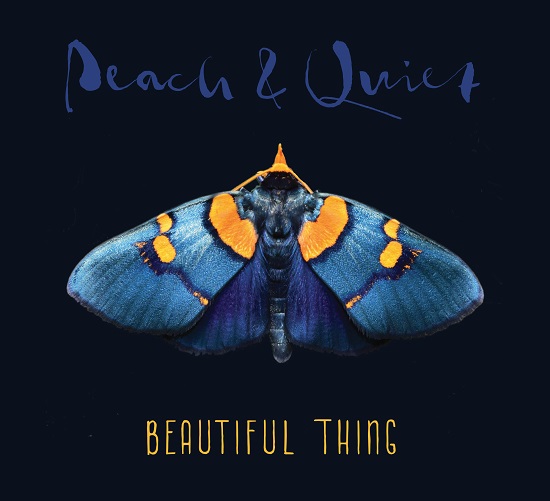
Two years after their debut ‘Just Beyond the Shine’, Peach & Quiet are back with another bunch of great songs aided and abetted by producer and guitarist extraordinaire Steve Dawson. The album continues where the debut left off with some gorgeous Americana/country rock/blues stylings with a few influences creeping in from the background of the duo Jonny Miller and Heather Reed. Our review of their debut referenced the usual Laurel Canyon influences but ‘Beautiful Thing’ pulls in some slightly rockier influences like seventies Fleetwood Mac (or particularly Lindsey Buckingham and Stevie Nicks) and a lot of that’s down to Steve Dawson’s production and playing with layers of guitars from resonators through electrics to pedal steel.
The gentle title track sets the tone for the album; its country feel with those guitar layers, lovely harmonies and Jonny Miller’s slightly raspy vocal are things that you hear in varying degrees throughout the album. As an added bonus (for me, anyway), the song opens with one of my favourite chord progressions, falling from the tonic to the subdominant. Want to know why I like this progression? It features in two of my favourite songs, ‘These Days’ by Jackson Browne and Graham Parker’s ’Watch the Moon Come Down’. And honestly, speaking as a mediocre guitarist, it’s easy to play and sounds good.
With a title ‘Horse and Saddle’ you’d be expecting a country arrangement; that would be too predictable. Jonny’s dad is a reggae DJ and he was brought up around reggae musicians, so the influence was always going to come out somewhere. Heather’s dad was a Hammond player and Hammond’s very much in evidence on the slow blues of ‘This Time’, the rock vibe of ‘Behind the Sun’ with a nod in the direction of Crazy Horse and ‘Pockets Empty’, the story of a relationship with a charismatic psychopath.
At a time when temperatures are heading below zero again, ‘Beautiful Thing’ brings a welcome splash of California sunshine with its infectious melodies, exquisite harmonies and perfect arrangements, balancing multiple guitar parts with piano and Hammond to create perfect settings for Jonny and Heather’s solo and duet vocals. Summer feels a long way away at the moment, but this album brings it a bit closer.
‘Beautiful Thing’ is released on Peach & Quiet Music (P&QCD002) on 20th January 2023.
Here’s a live video of ‘This Time’:
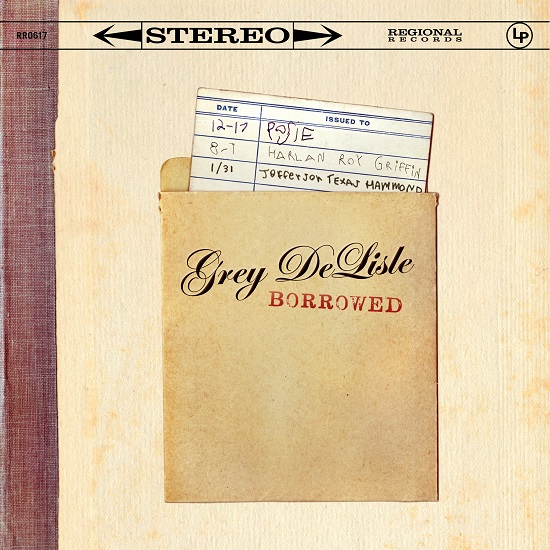
Here’s a fascinating first album to review in 2023. Grey DeLisle put her musical career on hold for fifteen years while raising a family but, like many others, the pandemic changed her plans and she found herself revisiting her favourite songs and uploading covers of them to social media. In turn, this led to working with producer Marvin Etzioni on a covers album, and what an interesting set of covers they are. She’s now working on an album of originals for release this year. Grey’s been compared to Loretta Lynn and Tammy Wynette but, with the odd exception, these songs aren’t heartbreak country.
You wouldn’t expect a country artist to be covering ‘Another Brick in the Wall’, would you? No, but that’s the album’s opening song and Grey obeys the First Rule of Covers Club; make the song your own. Whereas the Pink Floyd original is strident and confrontational, with a full band sound, Grey’s version is much slower and built around an arrangement that’s paradoxically minimal but with a full band plus strings and horns. Grey’s vocal doesn’t push hard, but it’s close-miked and dominates the mix.
The straightforward country songs like ‘Tonight You Belong to Me’, ‘Borrowed and Blue’ and ‘Valentine’ are delivered beautifully with Grey’s voice evoking the Queens of Country (more Dolly and Patsy than Loretta and Tammy to my way of thinking) with the usual side orders of strings and pedal steel; it’s on the songs with less traditional arrangements that Grey and the band work their magic.
Just a few examples for you. ‘Girl’ is a reworking of an ’Electric Warrior’ T Rex song in triple time with a gorgeous string section replacing the horns from the original, while Marie Knight’s ‘Calvary’ starts as a straightforward gospel song at the lower end of Grey’s vocal range before the first chorus erupts into a New Orleans jazz funeral with strident horns. And let’s not forget John Barry’s Bond theme ‘You Only Live Twice’, (with The Satellites Four) delivered in a very easy listening style Grey’s take on ‘Georgia on My Mind’ at the higher end of her vocal range adorned by some plaintive harmonica from Mickey Raphael (Willie Nelson’s harmonica player).
‘Borrowed’ certainly demonstrates the eclecticism of Grey DeLisle’s musical tastes and her willingness to deconstruct and rebuild a song to create a whole new work. There’s an art to reinterpreting just one song, but it’s a completely different challenge creating a coherent album full of reworkings; Grey DeLisle aces it.
‘Borrowed’ is released in the UK on Regional Records (RR0617) on Friday January 6th.
Here’s a link to the video for ‘Another Brick in the Wall’:
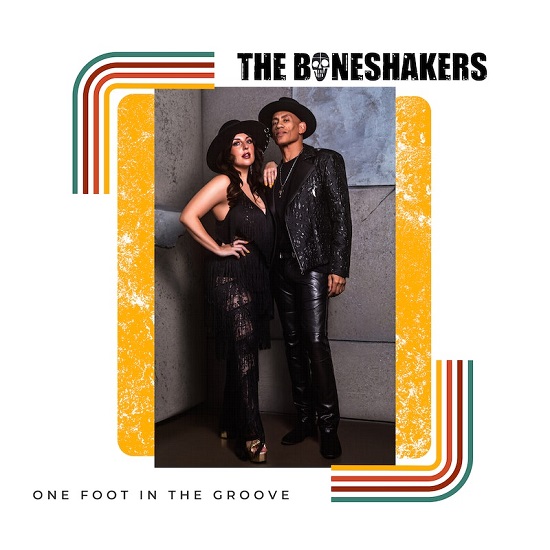
Apologies on this one folks. This album has been out for a while and despite being delivered through the letterbox rather than into the inbox, it got shuffled to the bottom of the pile. Anyway, it’s so good that I had to tell you about it. Better late than never, and it’s now the first Music Riot review of 2023.
The Boneshakers, led by world-renowned former Was (Not Was) guitarist Randy Jacobs, and now fronted by singer Jenny Langer (channelling Janis Joplin and Tina Turner), are celebrating their twenty-fifth anniversary in 2022, sixteen years since the release of their last album. The list of megastars that the band members have worked and played with, live and in the studio, is almost endless and covers a huge variety of musical styles. ‘One Foot in the Groove’ isn’t so much a new album as a celebration of the artists and styles that have influenced The Boneshakers sound over the years. They’ve also called in a few guest appearances to add a few more colours to the tonal palette. More about that later.
Of the ten tracks on ‘One Foot in the Groove’, only two are originals, Randy Jacobs’ ‘Powerful Notions’ which closes the album and the Jacobs/Jenny Langer co-write, ‘Big Legged Man’. The remainder are mainly lesser-known songs, with the exception of The Stones’ ‘Let’s Spend the Night Together’. They’re delivered in soul/blues/funk stylings that seem to be almost effortless because of the quality of the musicians involved. These guys can play.
‘Ain’t Got the Fever No More’ is a good example of the type of song covered on the album. The song was written by Steven Van Zandt for Southside Johnny and the Asbury Jukes’ second album ‘This Time It’s for Real’. The Boneshakers stick to the mid-tempo shuffle of the original but take it in a more bluesy direction. This may be a coincidence, it may not, but former Juke and E Street Band trumpet player Mark Pender guests on this song along with Joe Sublett of the Texicali Horns. The other guest appearance is by Stones’ backing singer Bernard Fowler on ‘I Forgot to Be Your Lover’ and, of course, ‘Let’s Spend the Night Together’. Let’s not forget Was (Not Was) legend Sir Harry Bowens, who appears on half of the songs on the album.
The album’s opener sets the tone for what’s to come. ‘Mr Alice Doesn’t Live Here Anymore’ is built around a slow groove with funky guitar, horns and Hammond and Jenny Langer’s raw vocal. From here on in, the funk runs through the album whether it’s blues (‘Big Legged Man’), soul (‘I Forgot to be Your Lover’) or jazz-tinged (‘Powerful Notions’). The combination of smooth playing and powerful vocals makes this an album that’s impossible to ignore. Turn it up to eleven.
‘One Foot in the Groove’ is out now on Take it to The Bridge Records.
Here’s a quick snippet from the ‘Making of…’ video for the album:
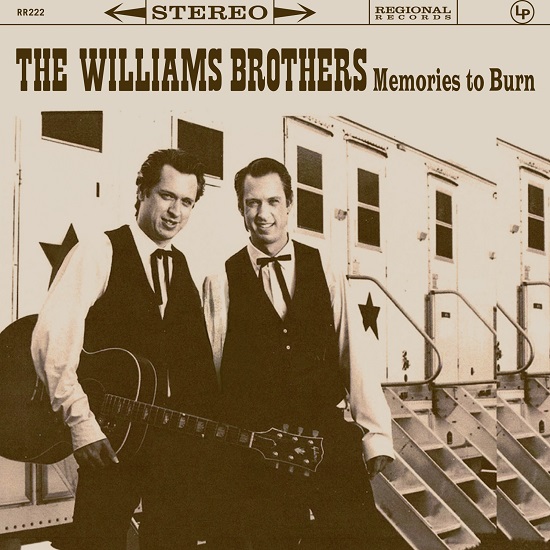
Let’s get this out of the way now because there’s no hiding from it. Yes, The Williams Brothers do sound incredibly like The Everly Brothers and with good reason. They aren’t just brothers, they’re twins, and Andrew and David Williams been singing and playing together for decades. And here’s a little bit of additional information; they’re also nephews of easy-listening megastar Andy Williams. With that musical heritage and the twin thing going on it shouldn’t be a surprise that the Williams Brothers’ two-part harmonies are absolutely stunning.
Before you even get into the detail of the individual songs, ‘Memories to Burn’ is an interesting concept; it was arranged in a small studio and recorded live to two-track. Everyone was happy with the results and then the tapes were stashed away for twenty-seven years before resurfacing this year. It’s an interesting package of ten songs, split equally between well-chosen covers and songs written by band members; the country stylings of the covers create a nice unity for the album, blending with the originals perfectly. It’s also noticeable that most of the songs clock in at about two minutes with two at around the 2:30 mark and the album’s closer, the Buffy Sainte-Marie song, ‘Piney Wood Hills’ scrapes in under 1:30. There’s absolutely no fat to trim away on any of these songs; if you can deliver your song in around two minutes, why would you add anything that makes the message less concise. It’s an album of short stories rather than novellas.
There are two constants across the entire album; the stunning two-part harmonies of the twins and the steel guitar licks that create the melancholy, retro mood of the album. There are moments on the album that are pure Everly Brothers; the title track could be Phil and Don vocally, although some of Marvin Etzioni’s chord changes are unusual and the falling upright bass run owes something to Nancy Sinatra’s ‘These Boots Were Made for Walking’. It all fits together perfectly. Another Marvin Etzioni composition, ‘Unanswered Prayers’, hints at Phil and Don’s ‘Let It Be Me’ with the Williams Brothers’ two-part harmonies featured throughout the song.
There’s an interesting transposition of styles across the album’s second and third songs. ‘Cryin’ and Lyin’’, another Etzioni composition has a Sixties pop song sound, while the following song, a genuine Sixties pop song is given a country makeover. Dave Davies’ Kinks hit ‘Death of a Clown’ might be an unlikely choice but the country treatment seems to highlight the strangeness of the lyrics; and they are pretty strange.
If you’re a fan of The Everly Brothers, then ‘Memories to Burn’ should make you smile. It’s out now on Regional Records (RR222).
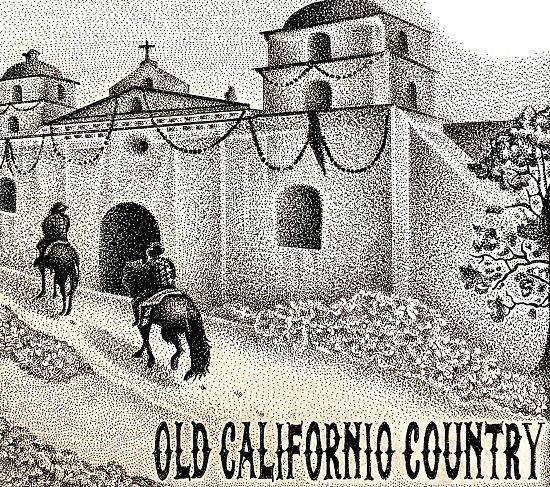
Here’s an interesting idea. Although the central figure in Old Californio is renowned songwriter Rich Dembowski, ‘Old Californio Country’ features ten covers and three band originals. There’s no reason why a songwriter shouldn’t do an entire album (almost) of covers; Bruce Springsteen’s just done it with his favourite old soul and rhythm and blues songs and the record-buying public is purring over that one. ‘Old Californio Country’ that’s packed with superb playing, beautiful lead vocals and harmonies and wonderful interpretations of songs by songwriters acknowledged as masters of their craft. It almost goes without saying that the playing isn’t showy, it’s just the playing that the song needs to make it shimmer.
Although the album’s heavily loaded with covers, the opener is a Rich Dembowski original played in classic country style and spiced with outlaw country sentiment – “shorten your give-a-shit list” is good advice for all of us. The covers range across a wide variety of country-related styles and interpretations, from Neil Young’s ‘Lotta Love’ that almost mimics Young’s ‘Comes a Time’ production but is turbocharged with perfect and powerful harmonies, to a rockabilly reworking of John Prine’s ‘Knockin’ On Your Screen Door’ that opens with a nod in the direction of Billy Joel’s ‘Still Rock and Roll to Me’. The Beatles’ ‘Because’ is transformed from a psychedelic piece to a banjo-led country song with soaring harmonies, while Lowell George’s ‘Willin’’ has all the edges and corners smoothed away to create a plaintive and beautiful ballad of life on the road made tolerable by “wed, whites and wine” punctuated by the reliably melancholy harmonica and lap steel fills – it’s the loneliness of the long-distance trucker.
How about favourites? Well two songs stand out for the quality of the song and the Old Californio interpretation. The Jason Isbell song ‘Maybe It’s Time’ (also covered recently by KB Bayley) is a classic example of powerful, evocative and economic songwriting highlighting indoctrination of the population underpinned by finger-picked acoustic guitars, lap steel fills and Nashville twang solo. The Guy Clark song ‘Stuff That Works’ is delivered in a minimal, laconic style with a resonator slide solo; it’s a hymn in praise of using the things that we actually need rather than the things we’re pressured to buy to keep up. Forget iPhone 14 and concentrate on that old shirt, pair of boots or guitar. On a personal note, I listen to my review albums on a fifteen-year-old MP3 player – if it ain’t broke…
‘Old Californio Country’ is out now.
Here’s a live version of ‘Willin’’:
OLD CALIFORNIO – WILLIN’ – Live at McCabe’s – YouTube
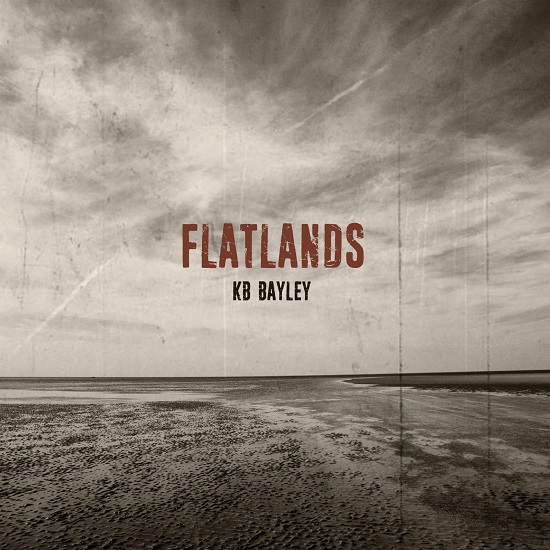
KB Bayley’s last album ‘Little Thunderstorms’ was recorded during lockdown and had a very definite UK feel with a hint of COVID claustrophobia. ‘Flatlands’ is a very different album. It’s almost a solo performance with KB underpinning his intimate vocals with some widely varied Weissenborn arrangements and a smattering of haunting harmonica from Gavin Thomas on a couple of tracks. ‘Flatlands’ has also shifted its focus to the other side of the Atlantic with four covers of American songwriters and many American references in KB’s 6 self-penned songs.
So, ten songs played almost solo by KB with just the Weissenborn. If you wanted to choose a stringed instrument that gave a varied range of backing options, the Weissenborn would be near the top of the list – open tuning and the horizontal lap playing position make it a formidable backing instrument in the hands of a good player and KB Bayley is a very good player, creating a wide variety of soundscapes to enhance the narratives. Both the vocal and the Weissenborn are close-miked; you can hear tiny string noise and KB keeps the vocal intimate and slightly raw without having to push too hard.
A sense of loss runs through the album, the damage to communities caused by progress and the yearning for those little but important moments from the past that went by almost unnoticed at the time but take on importance as time passes. Part of the American feel comes from the well-chosen covers, Jean Ritchie’s ‘The L&N Don’t Stop Here No More’, Tom Waits’ beautifully-crafted ‘Johnsburg, Illinois’, Kelly Joe Phelps’ ‘The Black Crow Keeps on Flying’ and Jason Isbell’s ‘Maybe This Time’ seems to cut across the nostalgia theme by saying we should get rid of old faiths and superstitions, echoing the starting afresh theme of KB’s own ‘Year Zero’. KB has very cleverly pulled together six of his own songs and four favourites by other artists to create a unified piece with strands of nostalgia, regret and religious references running through it. His own song ‘Driftwood Avenue’, with Gavin Thomas’ haunting harmonica contains the line “Look for what’s been lost” and the first two verses reference the loss of Art Garfunkel and Paul Simon’s friendship.
It’s not easy to create a solo album with voice and instrument (apart from the harmonica contributions) but the versatility of the Weissenborn and KB’s fingerstyle mastery create a variety of textures for the songs that make a very satisfying album.
‘Flatlands’ is released on Friday November 4th.

It’s been a while since we heard from Rob Heron (‘Soul of my City’ in 2019) for all the usual obvious reasons. The release of “The Party’s Over continues to chart the development of the band. There are similar musical and lyrical themes across the two albums; some of the songs have a retro feel, there’s a bit of a political edge at times and the lyrics are cleverly constructed. Rob has always had an eclectic blend of styles ‘The Party’s Over’ develops this further, particularly with the addition of horns on various songs to create a particular feel or evoke a particular era.
The Tea Pad Orchestra already has a wide musical palette with Tom Cronin and Ted Harbot’s combination of mandolin, harmonica, baritone guitar, upright bass and electric bass, and Colin Nicholson’s keyboards, accordion and whistle allowing the band to use surf punk, gipsy jazz, zydeco, country and string band arrangements (among others). The addition of the House of the Black Gardenia brass section adds another dimension, particularly on the album’s closer, ‘The Doctor Told Me’, a humorous tale of the dangers of excess that brings in a melancholy muted jazz trumpet in the third verse to hint at something sad to come before the horns burst in with a New Orleans jazz funeral arrangement to emphasise the death (and rebirth) of the storyteller.
The album’s incredibly varied, moving through the nonsense zydeco of ‘Snip Snap Snout’ to the slow country waltz ballad ‘Trouble Is’ to the Mexican sixties feel of ‘The Horse that You Rode In On’ – a diss track that channels Frankie Laine’s ‘Rawhide’ with humorous lyrics and trumpets and fiddle. There’s a lot going on. And that’s before the madness of ‘My Salad Days’, with its clever wordplay, baritone guitar fills and yodelled a cappella intro. The political element comes with ‘A Call to Mother’s Arms’, a string band arrangement of a song about young men being sent to fight in overseas wars, Vietnam I suspect, and coming back in coffins.
After three years, this is a cracking return from Rob Heron and the Tea Pad Orchestra. It carries on the anarchic feel of previous albums while expanding the musical palette to include soul stompers, Mexican mariachi and New Orleans jazz. You can’t argue with that.
‘The Party’s Over’ is out now on Tea Pad Recordings (TP008/TP008CD).
Here’s the video for the title track:


